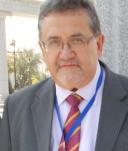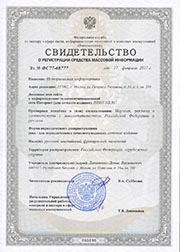|
MAIN PAGE
> Back to contents
Historical informatics
Reference:
Vladimirov V.N., Garskova I.M., Frolov A.
In memory of Arkady Filippovich Oskin
// Historical informatics.
2023. № 3.
P. 122-127.
DOI: 10.7256/2585-7797.2023.3.48499 EDN: XOTAFR URL: https://en.nbpublish.com/library_read_article.php?id=48499
In memory of Arkady Filippovich Oskin
Vladimirov Vladimir Nikolaevich
Doctor of History
Professor, Department of Russian History, Altai State University
656049, Russia, Altai Krai, Barnaul, ave. Lenin, 61, of. 312

|
vvladimirov@icloud.com
|
|
 |
Garskova Irina Markovna
Doctor of History
Associated professor, Lomonosov Moscow State University
119607, Russia, Moscow, Ramenki str., 31, office 253

|
irina.garskova@gmail.com
|
|
 |
|
Frolov Alexey
ORCID: 0000-0003-2366-6545
Doctor of History
Leading researcher, Institute of World History of the Russian Academy of Sciences, Head of Historical Geoinformatics Laboratory
119334, Russia, Moscow region, Moscow, Leninsky Ave., 32A, office 1405

|
npkfrolov@gmail.com
|
|
 |
Other publications by this author
|
|
|
DOI: 10.7256/2585-7797.2023.3.48499
EDN: XOTAFR
Received:
05-10-2023
Published:
12-10-2023
Abstract:
The publication is dedicated to the memory of the veteran of the Association of Researchers "History and Computer" (AIC), who passed away on June 28, 2023. Its authors, members of the AIC, touched upon his research and teaching activities, paying special attention to his long and extremely fruitful cooperation with the Association: participation in its seminars and conferences, publication activity, work in the AIC Council, involvement of modern computer science methods to extract new historical knowledge, contribution to the development of the main areas of priority for the AIC, popularization of historical informatics among historians and students, the introduction of its approaches in the educational process. Arkady Filippovich's latest article in the journal "Historical Informatics" (No. 2 for 2023) is devoted to one of the most popular areas of historical informatics now - the use of artificial intelligence technologies in historical education. In total, the number of his published works exceeds 300, of which 45 were published under the auspices of the AIC. Many of these works can be found on the AIC website. We, historical researchers, AIC members, students, close people, have lost a wonderful scientist, a wise teacher, an irreplaceable colleague, a good friend.
Keywords:
Arkadij Filippovich Oskin, historical information science, artificial intelligence, humanities, arts education, in memoriam, scientific publications, History and Computing, historiography, methodology
This article is automatically translated.
You can find original text of the article here.
I can't believe it, but Arkady Filippovich Oskin (June 5, 1945 - June 28, 2023), one of the most active members of the History and Computer Association since the early 1990s, who was at the origins of its activities, is no longer with us. Arkady Filippovich Oskin first appeared in the community of Russian historians-quantifiers back in October 1991, when in Minsk and Raubichi, the Councils of Young Scientists of Moscow State University and BSU, with the support of the Commission on the Use of Mathematical Methods and Computers in Historical Research at the Department of History of the USSR Academy of Sciences, held an All-Union school-seminar for young scientists "The role of method in historical Research". Arkady Filippovich took an active part in the seminar. Soon, in the autumn of 1993, Belarusian colleagues already participated in the first conference of the Association "History and Computer", and in the spring of 1994 – in the second, where the report of A.F.Oskin and his colleagues from the University of Polotsk V.I.Shaikov "On some prosopographic and computer aspects of historical research: on the example of the history of the Polotsk region" was made at the section on databases and attracted attention by the high level of application of computer technology in prosopographic research. The authors of the report became full members of the AIC, having received recommendations from their colleagues from the BSU V.N.Sidortsov and E.N.Balykina. Since then, Arkady Filippovich has been one of the most active authors of scientific publications published in AIC publications, his name has consistently been among the top ten most popular names. It is enough to mention that under the auspices of the AIC, he published 45 works, and this is not counting the collections that were produced by the Belarusian "branch" of the Association. Arkady Filippovich's research interests included almost all areas of AIC work: information (including network) resources and databases, information technology and software, modeling of historical processes, etc., but the largest number of publications was devoted to methods and technologies of historical research and the use of information technologies in historical education. It should be noted that these works were not purely methodological or methodical publications, they were always associated with solving applied research problems. Prosopography, demography, conflictology, social history – methods and technologies were tested, algorithms and software tools were tested for research tasks in these areas. Working with databases, Arkady Filippovich studied the possibilities of post-relational DBMS, engaged in the development of Internet resources, turned to the XML language, using statistical methods, introduced various algorithms for multidimensional statistical analysis, methods for analyzing entropy characteristics. He was always interested in complex, non-standard tasks. He tested a variety of computer systems for mathematical modeling of historical processes, such as fractal algorithms, fuzzy cognitive modeling, etc., and in his publications Arkady Filippovich, being an excellent teacher, was able to simply and easily show the reader the advantages and possibilities of the proposed approaches for solving specific applied problems. He was one of the first to promote the ideas of using data mining, intelligent information and reference systems, personal learning environments, cloud technologies, electronic UMCS. Arkady Filippovich was a real, enthusiastic university teacher, hence his constant interest in the introduction of information technologies into education at various levels – from global, related to the general problems of higher education, to routine tasks of information support of the educational process and technologies of its management. Being always "on the wave" of new technologies, in his recent publications Arkady Filippovich increasingly turned to the possibilities of using artificial intelligence in the educational process. His last article in the second issue of the journal "Historical Informatics" for 2023, which, unfortunately, he did not have time to see published, is called "The use of artificial intelligence technologies in historical education" on the example of the course "History of Belarus"”. This article is one of the first reviews in Russian historiography on such an urgent issue, given the huge interest of the modern reading public in artificial neural networks and, in particular, to ChatGPT, with an assessment of the pros and cons of new realities both in the intellectual sphere and in the information space as a whole. Arkady Filippovich generously shared his developments with his students and colleagues. His publications in collections and journals aroused great interest of the scientific community, and his reports at conferences and seminars, sometimes containing not yet fully tested provisions and discussion points, generated new ideas, allowed us to take a fresh look at seemingly familiar problems, try non-standard methods and approaches on our data. Arkady Filippovich willingly led round tables on topical issues of historical informatics at AIC conferences and seminars, vividly and kindly led breakout sessions, and not only those related to the use of new technologies in historical education, but also devoted to mathematical modeling, information technology and electronic resources. Always friendly, Arkady Filippovich was an indispensable member of the expert commission in the competitions of young scientists at AIC conferences, he gave many representatives of scientific youth recommendations for joining our scientific community. In the 2000s, Arkady Filippovich was a member of the editorial boards of the AIC Newsletter and the periodical "Circle of Ideas", was a member of the AIC Council, at the last, 18th, conference he agreed to join the Council again after a break, he had many new ideas and creative plans. We have lost a wonderful scientist, a wise teacher, an irreplaceable colleague, a good friend. The memory of him will be just as kind and bright… 
Fig. 1. At the plenary session of the 5th AIC Conference (Krasnovydovo, 1997) 
Fig. 2. At the plenary session of the 10th AIC Conference (Moscow, 2006)
References
1. Garskova I.M. (2018). Istoricheskaya informatika. Evolyutsiya mezhdistsiplinarnogo napravleniya. SPb.: Aleteiya.
Peer Review
Peer reviewers' evaluations remain confidential and are not disclosed to the public. Only external reviews, authorized for publication by the article's author(s), are made public. Typically, these final reviews are conducted after the manuscript's revision. Adhering to our double-blind review policy, the reviewer's identity is kept confidential.
The list of publisher reviewers can be found here.
Review of the article “In memory of Arkady Filippovich Oskin”The subject of the article is the life and work of A.F. Oskin, a famous scientist. Research methodology The research methodology is based on the principles of objectivity, science and historicism. When developing the topic of biography research, a complex method was used: the facts of the biography of the scientist historian-quantifier are considered. Special historical methods are also used in the work: historical-systemic, historical-genetic, etc. research methods. Relevance. The relevance of the study is due to the fact that it is necessary to show the activities of A.F. Oskin, one of the most active members of the Association “History and Computer” since the early 1990s, who stood at the origins of its activities. This article is a scientific novelty. Scientific novelty is determined by the formulation of the problem and objectives of the study. The scientific novelty is also determined by the fact that the article is actually “one of the first reviews in Russian historiography on such an urgent issue, given the huge interest of the modern reading public in artificial neural networks and, in particular, ChatGPT, with an assessment of the pros and cons of new realities both in the intellectual sphere and in the information space as a whole.” Style, structure, content. The style of the article is scientific with descriptive elements and this approach of the author is justified. It allows us to more fully and deeply show the personality of A.F. Oskin as an inquisitive and versatile researcher. The structure of the work is aimed at achieving the goals and objectives of the study. The text of the article is logically structured and presented. The author notes that Arkady Filippovich was "one of the most active authors of scientific publications that were published in the publications of the Association "Historian and Computer" (AIK,), he published 45 works, not counting the collections that were produced by the "Belarusian" branch of the Association. A.F. Oskin was interested in all areas of work of the AIK and He wrote works on information resources (including online ones), databases, information technologies, methods and technologies of historical research and the application of information technologies in historical education. The author notes that AF. Oskin was “interested in complex, non-standard tasks,” and therefore he “tested a variety of computer systems for mathematical modeling of historical processes, such as fractal algorithms, fuzzy cognitive modeling, etc.” The peculiarity of A.F. Oskin was that he could simply and easily present and show “the reader the advantages and possibilities of the proposed approaches for solving specific applied problems". The author emphasizes that he was one of the first who “promoted the ideas of using data mining, intelligent information and reference systems, personal learning environments, cloud technologies, electronic UMCS.” The author shows in the article the personal qualities of the scientist, his benevolence, tact, sincerity, etc. Appeal to opponents is presented at the level of the work carried out by the author. It seems that there can be no opponents to this work, and everyone who knew A.F.Oskin is upset that such an interesting and multifaceted researcher has disappeared. The article deserves to be published.
Link to this article
You can simply select and copy link from below text field.
|
|




